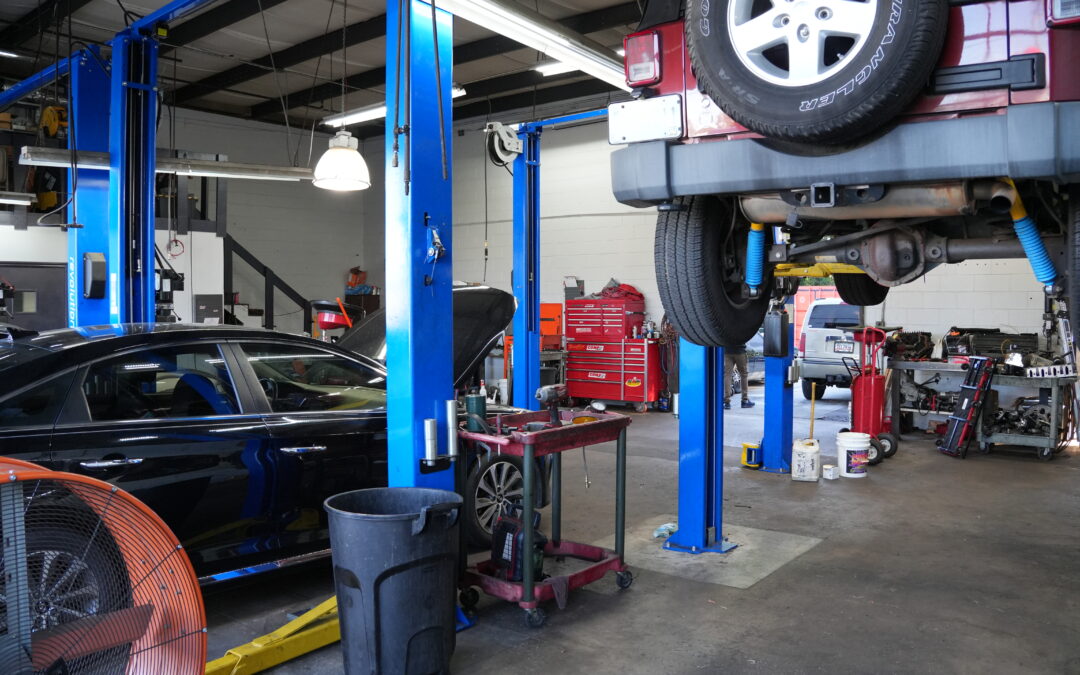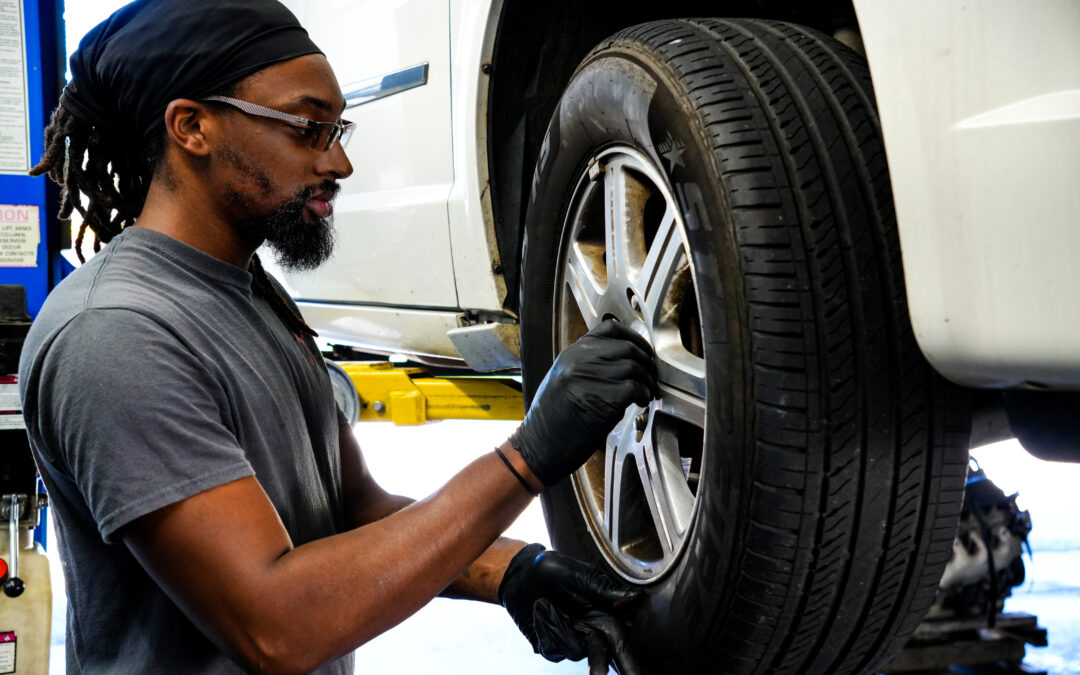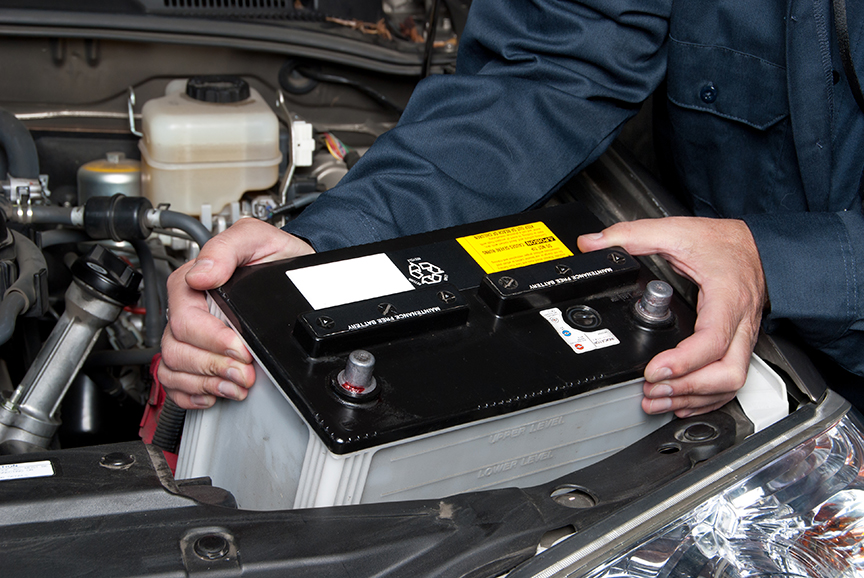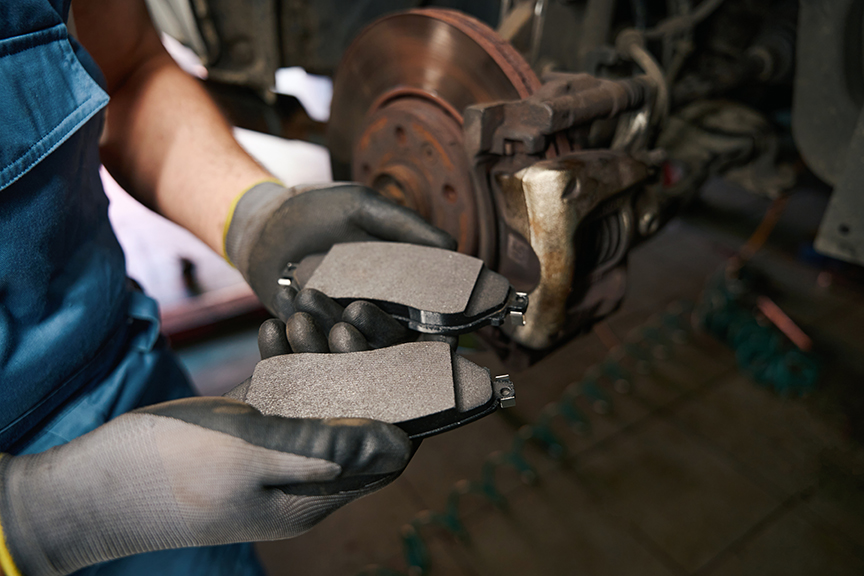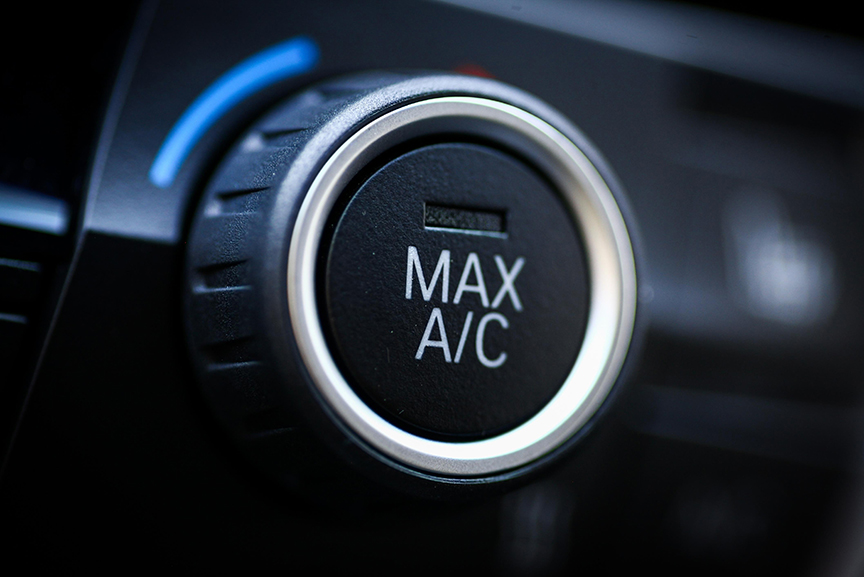
Simple checks to help you avoid breakdowns, delays, and expensive surprises this December
The holidays in Marietta bring a familiar mix of cold mornings, early sunsets, rain, and packed roadways. Whether you’re commuting across Cobb Parkway, hopping on I-75 to visit family, or braving stop-and-go traffic around Atlanta, a little vehicle prep now can save you a lot of stress later.
This guide focuses on what actually matters for December driving in North Georgia—quick, practical checks that improve safety and help you avoid the most common holiday-season issues.
The 10-minute mindset: prevent the easy breakdowns
Most holiday roadside problems come from a short list: weak batteries, low tire pressure, worn brakes, poor visibility, or neglected fluids. The good news? These are usually easy to spot and inexpensive to address before your trip.
If you’re traveling soon, the ideal plan is a fast pre-trip inspection that covers the basics in one visit.
Heading out of town? Call Advantage Auto Service for a quick pre-trip check before you hit I-75.
1. Battery & charging system: the #1 cold-morning culprit
Even in Georgia’s mild winter, a chilly morning can expose a battery that’s on its last leg. If your car cranks slowly, your battery is older, or you’ve noticed dim headlights at idle, you’re in the danger zone.
Watch for:
- slow start or clicking
- warning lights related to battery/charging
- electronics acting “glitchy”
Why it spikes in December:
Holiday travel + colder nights = more demand on a battery that was already weak.
Smart move:
A quick battery and charging test is fast and can prevent the dreaded “won’t start” in a parking lot.
2. Tires: pressure drops when temps drop
Temperature swings can lower tire pressure. Underinflated tires reduce fuel economy and can compromise wet-road traction—especially during December rain.
Quick checks:
- confirm all tires (including spare) are properly inflated
- inspect tread depth
- look for uneven wear
Rain matters here:
Marietta winters are often more wet than snowy, so tread and pressure are your real safety combo.
3. Brakes: holiday traffic is rough on stopping power
Stop-and-go driving around shopping areas, I-75 backups, and city congestion puts extra strain on the braking system.
Watch for:
- squealing or grinding
- vibration when braking
- a soft or spongy pedal
- longer stopping distances
If you notice any of these signs, it’s worth checking sooner rather than later. A small brake issue can turn into a much bigger repair if ignored.
4. Visibility essentials: wipers, lights, defroster
Shorter days mean more night driving. Add rain and road spray, and visibility becomes a safety priority.
Make sure you have:
- quality wiper blades
- full washer fluid
- strong headlights and brake lights
- a working defroster
This is one of the cheapest safety upgrades you can make before the holiday rush.
5. Fluids that deserve a December check
You don’t need a full “winterization” like northern states, but you do need healthy fluids.
Key items:
- oil: fresh oil handles temperature changes better and protects on long highway runs
- coolant: still critical in winter; traffic + long drives can expose neglected cooling systems
- brake fluid: affects braking performance and safety
- washer fluid: underrated but essential for rainy highways
6. Cooling system: yes, even in winter
People assume overheating is strictly a summer problem. But if your coolant is old, your hoses are worn, or your system is low, the combination of long drives and congestion can still cause problems.
Especially relevant if:
- you’ve had recent temperature gauge fluctuations
- you smell coolant
- your heater performance has weakened
7. The “before you leave the driveway” sound check
This is a simple habit that catches issues early:
Listen for:
- new squeaks or grinding
- rattles over bumps
- unusual engine noises on cold start
If something sounds new, it probably is.
8. A simple holiday emergency kit
Not because you expect trouble—because it’s smart insurance.
Keep in the car:
- portable jump starter
- flashlight
- phone charger
- blanket
- water
- basic first aid
9. Pre-trip inspection: the smartest 20 minutes you can spend
If you’re traveling in the next two weeks, a quick shop visit for a pre-trip check is the easiest way to turn uncertainty into confidence.
A good pre-trip check typically covers:
- battery/charging
- tires/pressure/tread
- brakes
- fluids
- lights
- wipers
- a quick scan for stored codes
If your schedule is tight, calling is often the fastest way to get in and out.
Call Advantage Auto Service to schedule a quick holiday readiness check.
10. Don’t forget the “small annoyances” that become big headaches
Holiday driving tends to amplify minor inconveniences:
- weak A/C or heater
- a check engine light that’s been “fine for months”
- shuddering at highway speeds
- intermittent starting
Even if your vehicle seems mostly okay, these issues can turn into trip-ruiners when you’re far from home.
Quick checklist you can screenshot
Before holiday travel, check:
- Battery health
- Tire pressure + tread
- Brake condition and feel
- Wipers + washer fluid
- Headlights, brake lights, turn signals
- Oil life
- Coolant condition
- Heater/defroster performance
FAQ
How long does a pre-trip inspection take?
Most are quick. If you’re short on time, ask for a focused safety check covering battery, tires, brakes, fluids, and lights.
Do I need winter tires in Marietta?
For most drivers in the area, no. What matters more is proper tire pressure and solid tread for wet roads.
What’s the most common holiday breakdown?
Battery issues top the list. Even a mild cold snap can expose a weak battery.
Should I worry about overheating in December?
It’s less common, but yes—especially if your cooling system hasn’t been serviced in a while or you’re facing long highway drives and heavy traffic.
Your simplest next step
If you want more peace of mind and fewer surprises this season:
Call Advantage Auto Service and ask for a holiday pre-trip check.
We’ll help you confirm the basics, catch early warning signs, and get you back on the road confident—before holiday traffic and cold mornings make small problems bigger.

Your car’s tires are the crucial point of contact between your vehicle and the road. Regularly inspecting them for wear and damage is paramount for your safety, ensuring optimal handling, braking performance, and fuel efficiency. Here’s how to determine if your tires need replacing:
Key Indicators for Tire Replacement:
- Low Tread Depth: The most critical factor. Perform the penny test: insert a penny into the tire tread groove with Lincoln’s head facing down. If you can see the top of Lincoln’s head, the tread depth is below the legal limit of 2/32 of an inch, and the tire must be replaced immediately.
- Visible Wear Bars: Most tires have built-in wear indicator bars (thin, raised strips of rubber) across the tread grooves. When the tread depth becomes even with these wear bars, it’s a clear sign that the tire has reached its legal limit and needs replacement.
- Cracks or Bulges in Sidewalls: Inspect the sidewalls of your tires for any cracks, cuts, or bulges. These indicate structural damage and can lead to sudden tire failure, posing a significant safety risk. Tires with sidewall damage should be replaced immediately.
- Frequent Air Loss: If you notice one or more tires consistently losing air pressure or experiencing repeated punctures, it may indicate underlying damage that necessitates replacement. While some punctures can be repaired, frequent issues suggest a more significant problem.
- Tire Age: Even if the tread appears adequate, the rubber compound in tires degrades over time due to exposure to UV rays, temperature fluctuations, and other environmental factors. Most manufacturers recommend replacing tires every 6 to 10 years, regardless of tread depth. Check the DOT (Department of Transportation) code on the tire sidewall to determine its manufacturing date.
The Importance of Regular Tire Inspections:
Make it a habit to check your tires at least monthly and before embarking on any long trips. Look for uneven wear patterns (which can indicate alignment issues or inflation problems), embedded objects (nails, screws, etc.), and any of the damage signs mentioned above. Proper tire maintenance, including maintaining the correct tire pressure, contributes to better handling, improved fuel economy, and most importantly, your safety on the road.

Your car battery is the power source for starting your engine and running various electrical components. Understanding its typical lifespan and recognizing the warning signs of a failing battery can help you avoid unexpected breakdowns and ensure your vehicle starts reliably.
Typical Car Battery Lifespan:
The average lifespan of a car battery is 3 to 5 years. However, this can be influenced by factors such as:
- Climate: Extreme temperatures (both hot and cold) can shorten battery life.
- Driving Habits: Frequent short trips may not allow the battery enough time to fully recharge.
- Electrical Load: Vehicles with many power-hungry accessories can put more strain on the battery.
- Maintenance: Proper maintenance, such as keeping the terminals clean, can help extend battery life.
Replacement Guidelines:
- It’s generally recommended to replace your car battery every 3 to 5 years.
- After the battery reaches its third year, consider having it inspected annually by a professional to identify potential issues early.
Key Warning Signs of a Weak or Failing Car Battery:
- Slow Engine Cranking: The engine turns over slowly and struggles to start.
- Dim Headlights or Electrical Issues: Lights appear dimmer than usual, or other electrical components (like power windows or the radio) operate sluggishly.
- Clicking Sounds When Starting: You hear a rapid clicking sound when you turn the ignition key, but the engine doesn’t crank.
- Frequent Need for Jump-Starts: If you find yourself needing to jump-start your car frequently, it’s a strong indication that your battery is failing.
- Bulging Battery Case or Unpleasant Sulfur Smell: These are signs of a potentially dangerous battery issue and require immediate attention.
- Battery Warning Light Illuminated: The battery warning light on your dashboard can indicate a problem with the charging system or the battery itself.
Proactive Tip:
If your car battery is approaching five years of age or you notice any of the warning signs mentioned above, have it tested by a qualified mechanic. Proactively replacing a weakening battery can prevent the inconvenience and potential safety hazards of an unexpected breakdown.

Brake pads are a critical safety component in your vehicle, responsible for generating the friction needed to bring your car to a stop. While their lifespan varies depending on driving habits and conditions, understanding typical replacement intervals and recognizing warning signs are essential for maintaining safe braking performance.
Typical Brake Pad Replacement Interval:
Generally, most brake pads last between 25,000 and 70,000 miles. However, this range is influenced by several factors:
- Driving Conditions: Frequent stop-and-go driving in city environments puts more wear on brake pads compared to consistent highway driving.
- Driving Habits: Aggressive braking and hard stops will significantly shorten the lifespan of your brake pads.
- Vehicle Type: Heavier vehicles tend to exert more force on the brakes, leading to faster wear.
- Brake Pad Quality: Higher-quality brake pads may last longer than cheaper alternatives.
Many automotive experts recommend having your brake pads inspected as part of your regular maintenance schedule, typically between 30,000 and 70,000 miles.
Key Warning Signs Your Brake Pads Need Replacing:
- Squeaking or Squealing Noises: This is a common indicator that the wear indicator on the brake pad is contacting the rotor.
- Grinding Sounds: A harsh grinding noise often signifies that the brake pads are completely worn down, and the metal backing plate is rubbing against the brake rotor. This can cause significant damage.
- Vibration or Pulsing in the Brake Pedal: This sensation when braking can indicate warped rotors, often caused by excessively worn brake pads.
- Longer Stopping Distances: If your car takes longer to come to a complete stop than usual, your brake pads may be worn and less effective.
- Brake Warning Light: The brake warning light on your dashboard can illuminate for various reasons, including worn brake pads (though it can also indicate low brake fluid or other issues).
- Visibly Thin Brake Pads: Inspecting your brake pads through the wheel can sometimes reveal if they are getting too thin (less than 1/4 inch of friction material remaining).
Best Practices for Brake Pad Maintenance:
- Regular Inspections: Have your brake pads checked at least every 10,000 miles or during your vehicle’s regular maintenance appointments.
- Prompt Replacement: Replacing worn brake pads promptly is crucial for ensuring safe braking and preventing costly damage to the brake rotors, which are significantly more expensive to replace.

Experiencing warm air instead of refreshing coolness when you turn on your car’s air conditioning? This frustrating issue is a common automotive problem with several potential causes, ranging from simple fixes to more complex repairs requiring professional expertise. Understanding these reasons can help you diagnose the problem and take appropriate action.
Common Reasons for Warm Car A/C Air:
- Low Refrigerant Levels: Often the primary reason for weak or warm A/C, low refrigerant typically indicates a leak within the system. Refrigerant is the essential substance that absorbs heat from your car’s interior and dissipates it outside. Insufficient refrigerant prevents effective cooling.
- Clogged Cabin Air Filter: The cabin air filter plays a crucial role in filtering out dust, pollen, and debris before air circulates inside your vehicle. A dirty or clogged filter restricts airflow, which can lead to the A/C blowing warmer than usual.
- Failing A/C Compressor: The compressor is the heart of your car’s air conditioning system, responsible for circulating the refrigerant. If the compressor malfunctions due to electrical problems, a faulty clutch, or internal mechanical failure, the system won’t be able to cool the air effectively.
- Blocked Condenser or Expansion Valve: The condenser cools the high-pressure refrigerant gas. If it becomes blocked by debris (leaves, bugs, etc.), its ability to cool is compromised. Similarly, a clogged expansion valve can restrict the flow of cold refrigerant into the evaporator, hindering cooling.
- Electrical System Issues: Problems within your car’s electrical system, such as faulty wiring, blown fuses, or a malfunctioning blower motor, can disrupt the operation of the A/C system and result in warm air.
Troubleshooting Your Car’s Warm A/C:
- Check and Replace the Cabin Air Filter: This is the easiest DIY check. Locate your cabin air filter (refer to your owner’s manual) and inspect it. If it’s visibly dirty, replace it with a new one. This simple step can often resolve airflow issues.
- Seek Professional Diagnosis for Complex Issues: If replacing the cabin air filter doesn’t solve the problem, or if you suspect a refrigerant leak or compressor failure, it’s crucial to consult a certified automotive technician. Modern vehicle A/C systems are intricate and require specialized tools and knowledge for accurate diagnosis and repair. Attempting to fix complex issues yourself can potentially cause further damage.



